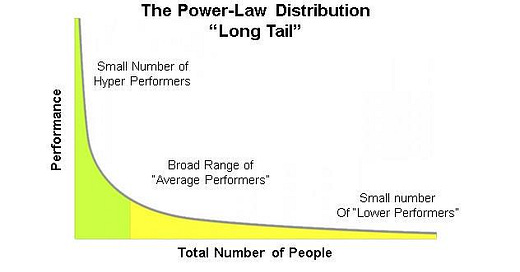Q: Why is communism good theoretically but bad practically?
A: The most brilliant answer I just recently learned, and it works in complete harmony with another idea I’ve known for a while. Two different smart dudes, same general principle, sorta. It's math.
Jordan Peterson & Pareto Law
What state socialism and what Marx himself did not recognize was the Pa…
Keep reading with a 7-day free trial
Subscribe to Stoic Observations to keep reading this post and get 7 days of free access to the full post archives.




